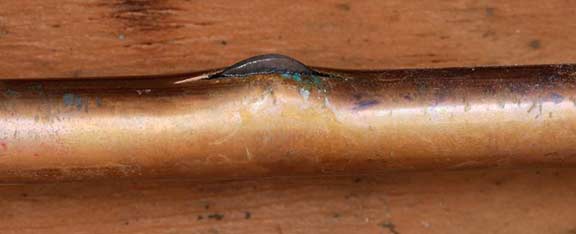How exactly do you prevent burst pipes? A burst pipe in your home is one of those plumbing emergencies you think cannot happen to you until it does. Every year millions of homes in the USA suffer damage from burst pipes. This year alone, it is estimated that as many as 250,000 households will face this issue, with the average insurance claim for each home at around $15,000.
When a water pipe breaks and releases water into your home, as Keyrenter McAllen explains, not only does the incident disrupt your daily life, but you are also faced with thousands of dollars of out-of-pocket costs, along with the paperwork of an insurance claim. This is in addition to how the incident can inflate your insurance premium. What can you do to avoid the aggravations of a burst pipe in your home?
How to keep pipes from bursting
There are three main reasons why pipes burst:
- The pipes could be defective due to age, corrosion, or other reasons.
- Improperly installed pipes are more likely to rupture or leak.
- But the main reason that water pipes burst in cold weather.
If pipes are exposed to very low temperatures during winter, the water inside them can freeze. Frozen water expands up to 10%. If that water is inside a pipe, it will have no place to go and can exert up to 40,000 pounds of pressure inside the pipe, and that’s enough to burst any pipe. Even worse, the pipe may not burst at the site of the freeze, further complicating issues.
How do you keep pipes from bursting because of cold temperatures?
Insulate walls and rooms
Crawlspaces, exterior walls, attics, and basements; pipes in these areas of the home are particularly susceptible to freezing. That’s because most attics and basements are not heated, while crawlspaces and exterior walls are exposed to the cold weather outside the house. Insulating exterior walls, attics, crawlspaces, and basements will keep the pipes that run in them from freezing.
Let warm air circulate
Keep the doors of under-the-sink closets open to allow the warm air inside your home to circulate to these areas. If the closet doors are shut, cold air will seep into the area from the outside, and the pipes could freeze. Keeping closet doors open when temperatures are low is a simple way to keep pipes from freezing during winter.
Keep faucets trickling
Pipes are less likely to freeze and burst if water flows through them. The constant movement of water through the pipes ensures that cold water does not stay long enough in one place to freeze. The easy way to do this is to leave faucets slightly open so that a dribble of water constantly flows from them.
Install heat tape
If a pipe is prone to freezing and taking the above steps does not solve the problem, use heat tape. Wrap this around the pipe to warm it when temperatures get low. Note that covering pipes with foam insulation will not do much to keep them warm. Heat tape is a more effective solution.
Disconnect garden hoses
Disconnect any garden hose connected to your external faucet. Drain the hose and store it for use in spring. Open the tap to let any water inside it drain; turn off the shut-off valve inside your home before you do this. Lastly, keep the faucet open throughout winter. It is also a good idea to install freeze-proof fixtures in this part of the house.
What to do when a pipe bursts
What if your pipe has burst, what can you do about it? The first order of business when you have a burst pipe is to try and minimize damage. The following steps will help you do that.
Know the location of the water shut-off valve
This fixture will cut off the water supply to the entire home, buying you time during an emergency. You should know where it is located beforehand. In most homes, you can find it after the water meter. But you may also find it in a small box outside your home if the house is in an area with moderately cold winters.
When you find the water shut-off valve, explain its use to your household and teach everyone in the home how to operate it. Attaching a bold label to the shut-off valve is an excellent idea to make it easy to identify. This small step can help you reduce expensive water damage to your home if a pipe burst.
Use self-bonding tape for emergencies
If the pipe bursts at night, you may be unable to get a plumber immediately, or the cost of getting a plumber may be too high. In that case, you can apply silicon self-binding tape to the pipe to seal it. This will let you turn the water on for short periods to get through the night. By morning your plumber can apply a permanent solution.
